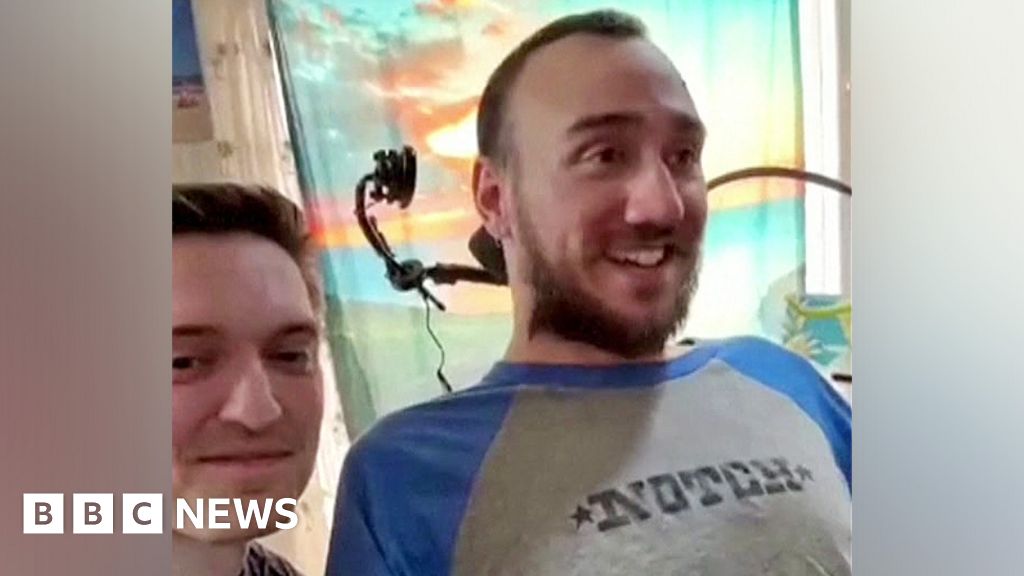In a livestream on X, patient Noland Arbaugh explained that he was playing a game of chess online using a device in his brain to move the cursor.
He appeared in the video beside Neuralink’s brain interface software lead Bliss Chapman, and answered questions about how the technology worked, saying that it required him to “imagine the cursor moving”.
The 29-year-old said he had become paralysed from the shoulders down after a diving accident. He said the Neuralink device was “intuitive” and his experience using it was “wild”.
Ten teenagers swap their smartphones for brick phones as part of a week-long digital detox.
BBC Analysis editor Ros Atkins looks at what what is being done to prevent minors seeing harmful content.
Piers Morgan and Oprah have criticised the use of AI deepfake ads used to promote a "manifestation" guide.
BBC Click reporter Paul Carter tries out the Atom Limbs prosthetic with 'full range of human motion'.
Jason lost his arm in an accident in 2012, and he's been working with Atom Limbs to test their prosthetic.
The BBC's James Clayton tests out the latest tech at CES 2024 in Las Vegas.
Researchers at University College London are investigating how the tech can help with early diagnoses.
Here's what our main takeaways are from the long-awaited trailer for the gaming blockbuster.
The prime minister says Elon Musk's background in AI companies means he is worth speaking to.
The King called for unity in addressing challenges ahead of a major UK summit on AI safety.
The US tech giant is looking at ways it can automate more of its operations.
With a team of 30 scientists, tech entrepreneur Bryan Johnson spends millions on his body every year.
Google UK boss Debbie Weinstein tells people to "use Google" to check information from chatbot Bard.
The BBC's James Clayton tries out Intel's "Fakecatcher", software which the company believes can help detect deepfake videos.
Filmmakers are using AI to generate short films and adverts. But are they any good?
The question was posed at the world's first robot-human press conference at a UN summit in Geneva.
WhatsApp, iMessage, Android Messages and Signal all use the super secure technology called end to end encryption. So how does it work and why are governments opposed to it?
Emad Mostaque, the British founder of the tech firm, Stability AI talks about the risks of artificial intelligence.
The app is banned from employee phones by various governments amid security concerns.
Leif Brooks created the popular and controversial video chat website, Omegle when he was 18. He never agrees to interviews but the BBC tracked him down at his home in Florida.
Copyright 2024 BBC. All rights reserved. The BBC is not responsible for the content of external sites. Read about our approach to external linking.
